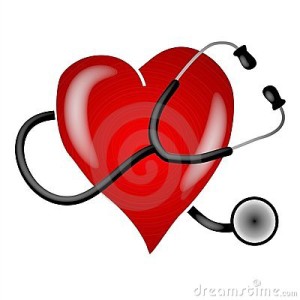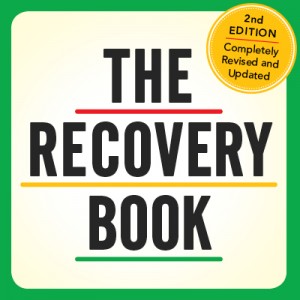If you have a medical or dental procedure planned, you’ll need to be extra vigilant about your recovery. Taking any mood-altering medications before, during or after your procedure can put you at high risk for a relapse.
In The Recovery Book, we suggest you return to the Red Zone and ramp up your recovery program at such times. (Read more about the Recovery Zone System in our Quick Start Guide post.) You should also talk with your doctor or dentist about medications before the day of your procedure.
The “Dear Doctor” letter below can help you to broach the topic. Print it out and take it with you to an appointment; use the information to start a conversation. Be honest with your health care provider, and enlist their help in your efforts to avoid relapse.
The Dear Doctor letter below was originally written by staff at Willingway Hospital; it was recently updated by Al J. Mooney, MD.
~~~~~~~~~~
Dear Doctor,
I understand that you have scheduled my medical procedure as quickly as possible. Although I have faith in you and your skills, I am not looking forward to this experience. However, I know you have my best interest in mind.
We have talked about my experiences as a recovering alcoholic/addict and how I have a special sensitivity to any mood-altering substances, including medications that could be given before, during or after the procedure. I have learned during my recovery that about 10% of the general population have an addiction to alcohol or drugs and that this addiction takes the form of a kind of allergic response to chemicals which change brain activity and reward systems. My brain’s response to these chemicals can be immediate, such as cravings for similar drugs; or it can be more gradual, where my thinking and perception become altered in such a way that my motivation for sobriety decreases and I return to old patterns of behavior closely linked to my substance abuse.
This type of behavior does not occur in the other 90% of people, so it is not the drug; it is something different about me. Why this occurs, I don’t know, but this response can mean life or death for me. That is why I hope you understand the impact of medications on me and my sobriety. What makes this more frightening is that we are not necessarily talking about large doses of drugs. Even exposure to minimal amounts can trigger this sensitivity.
“In addicts, doses of drugs that are too low to produce any conscious recognition that they received are still quite capable of inducing changes in the brain and influencing behavior…” (From an article on fentanyl abuse in Journal of Addictive Disease, Vol. 26, No. 1, 2006, Mark S. Gold, MD, Department of Psychiatry/Neuroscience, University of Florida.)
It is my hope that you can help me avoid unnecessary risk of relapse as a result of my upcoming procedure. This does not mean you are responsible for my sobriety—you aren’t! I am responsible and there are things I can do to make it easier to get through this, such as making sure I am prepared physically, mentally and spiritually; and I promise to do the best I can. However, there are some things which you, as my physician, may be able to decide that could make a big difference.
Before Surgery Doctors will often order sleeping pills in the evening before or a mild tranquilizer on the morning of a procedure. Although beneficial to most patients, there are non-pharmacological ways to ensure my emotional state does not interfere with my procedure. So please don’t feel it necessary to insist I take something beforehand.
During Surgery Being put to sleep with general anesthesia is the next best thing to being passed out drunk. My brain just does not see the difference! That is why I am open to any alternative, such as local anesthesia or an epidural. If an alternative is not medically indicated, just remember that it is not unusual for an alcoholic or addict to require higher doses for general anesthesia.
After Surgery This is when most addicts end up in trouble. At this point, my brain will probably be convincing me I need relief—spelled N-A-R-C-O-T-I-C-S. Besides the physical discomfort, I may seem anxious, irritable and unable to sleep and it will be very tempting to treat these symptoms with a variety of medications that could be hazardous to my recovery. So before scribbling out a prescription, remember, “It doesn’t take a lot of sense to stay sober…but it takes all I’ve got!” The Phenergan for nausea, the Xanax or Ativan for anxiety, the Trazodone, Ambien or Benadryl for sleep or even Ultram for pain can all trigger that compulsion for more. The ideal but often impractical solution is to keep me in a controlled environment until medications are no longer needed. Sending me home with a prescription can be dangerous.
In the rare case where narcotics are required for pain control, it may be best to use a medication that you hesitate to administer. Giving a more potent narcotic for a shorter period of time may be less risky than using a milder drug for a long time. Most doctors are more likely to stop Demerol or morphine after a few days than to continue to write prescriptions for longer periods. I have been told by other addicts that taking Tylenol, Motrin or Toradol worked as well as narcotics in most cases following a procedure.
Be prepared for my personality, including judgment, to be altered for about three months. So don’t immediately approve my moving to Alaska to teach dogsled racing. It is always best if I have someone other than myself guiding me through this experience. If I come by myself, ask me about my sponsor, family member or perhaps an addiction medicine specialist to monitor my state of mind. I give you full permission to ask or suggest whatever is needed to ensure my long-term health—physically, mentally and spiritually.
Thank you, Doc, for doing your job and helping me do mine! Sincerely, Your patient


Thanks, Chris. Appreciate your passing it on to the surgeon! We have a lot more information in the book on how to deal with ALL kinds of medical situations when in recovery. Everything from colds to kidney stones. ~ Catherine Dold
After a successful surgery for a full knee replacement have sent this information to my surgeon less interested in the request I made regarding my surgery and medication I think he will consider information seriously as he was impressed with my modest use of medication after surgery
Pass on to Dr. Kline